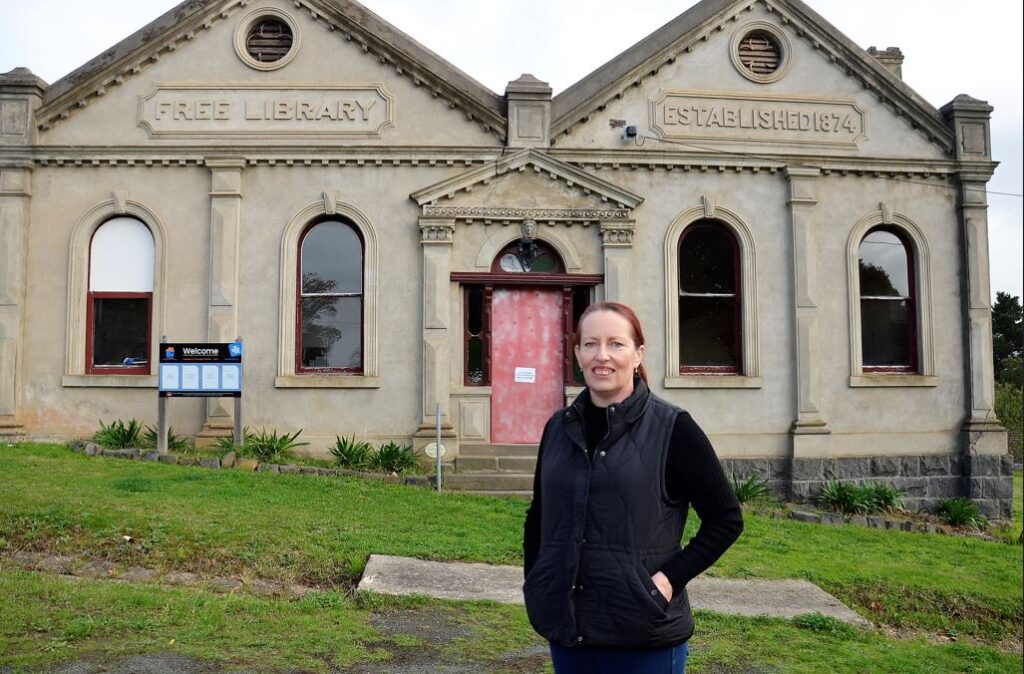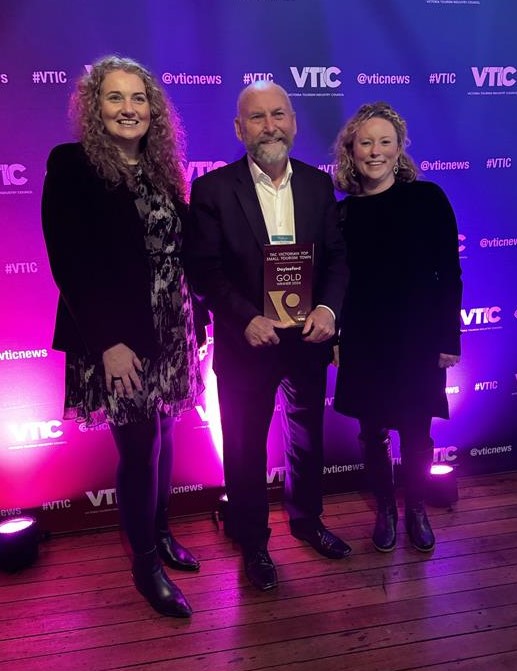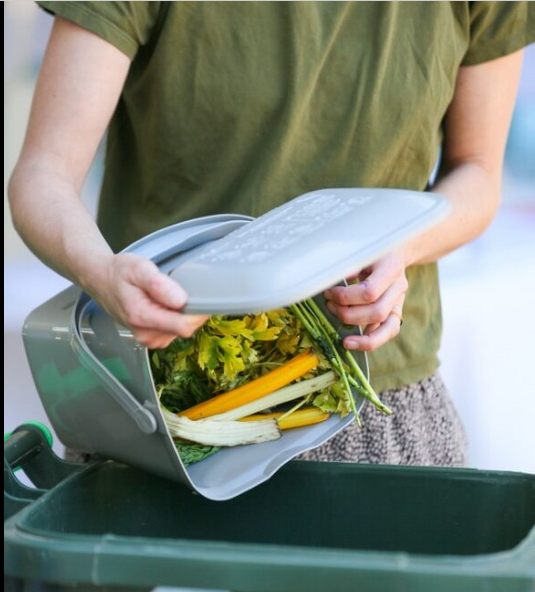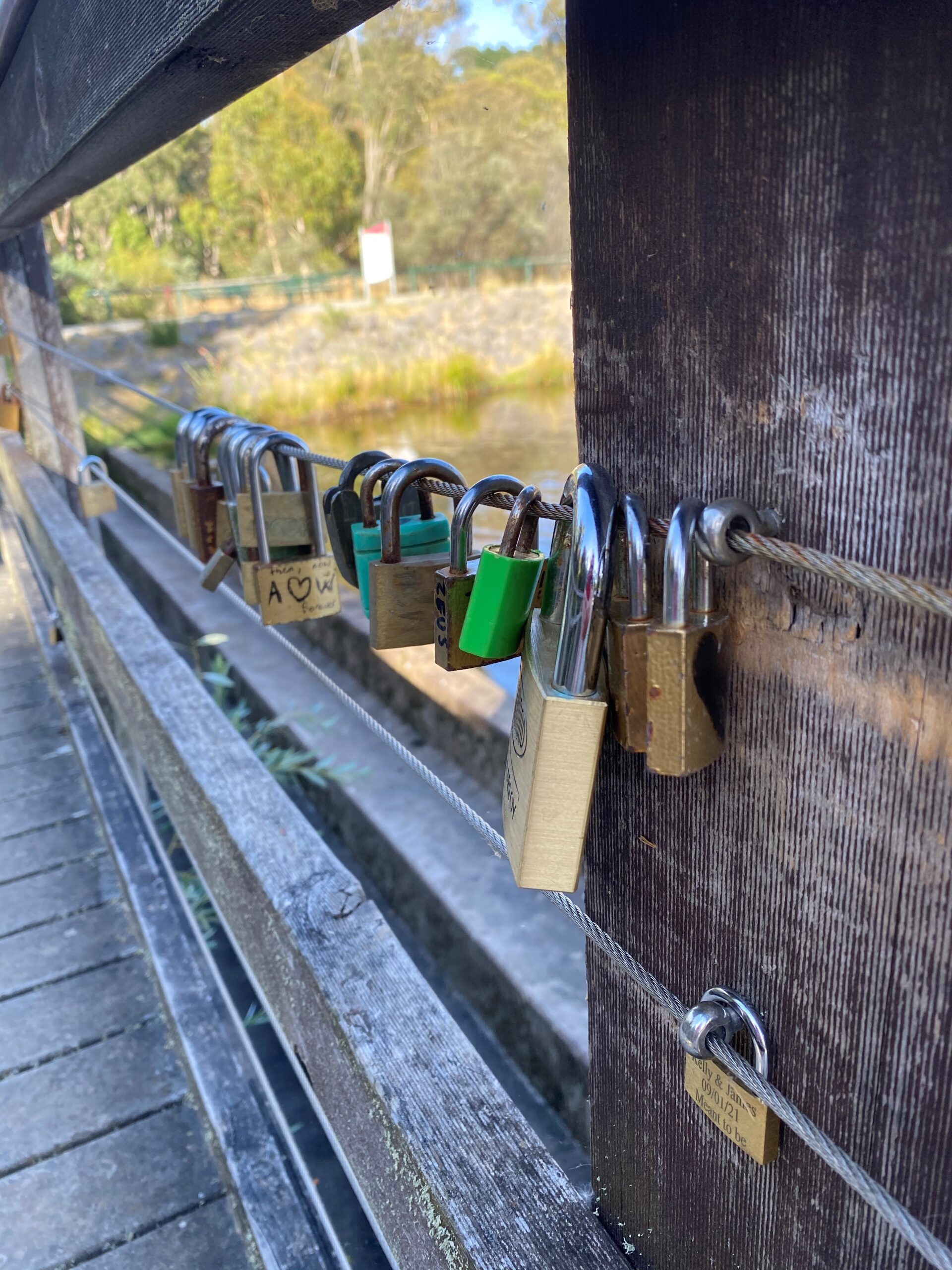May 25th, 2023Neighbourhood house begins new chapter for historic library building

Words and image Eve Lamb
The permanent relocation of Clunes Neighbourhood House to the town’s former Free Lending Library Building is poised to breathe new life into one of the town’s historically significant sites, invigorating the CBD as well.
For the previous 20 years or so Clunes’ historic former free lending library in Templeton Street, has sat largely unused, save for some assorted community meetings and a brief stint involving youth activity.
But plenty of groundwork by dedicated community volunteer committee of management members has paved the way for the beautiful old building’s reinvention – for essentially the very same use its founding mothers intended way back in 1852.
Stage one works inside the building, are now in full swing and are scheduled for completion in June, says Clunes Neighbourhood House manger, Lana de Kort.
When the new flooring and other internal works are done come the end of June the Neighbourhood House will then base itself there permanently, having previously been housed in the town’s Lee Medlyn Bottle Museum complex for the past 10 years or so.
In the meantime, while key works are under way, the Neighbourhood House HQ is temporarily working out of the town’s BOOM co-working space in Fraser Street.
Lana says the move to the former free lending library building has been informed every step of the way by what the community wants, guided by the ethos “focus on the Neighbourhood and the House can follow”.
“The Committee of Management and Department of Energy, Environment and Climate Action (DEECA) approached us to use the building at a time that was perfect for us,” she says.
“We’re still continuing to take responsibility for the Lee Medlyn space and we will work out how the community wants to use that into the future.
“Most of the works here (in the free lending library building) will be finished by the end of June, and that will enable us to get into the building. The current work is the first stage of a series of stages and we expect there will be four stages,” Lana says.
She says funding for this work was “just the latest in a series of smart decisions made by people protecting this building” and was secured by Graeme Johnstone, Phil Taig and Denise Fordham (the then committee for the building) through the Hugh D.T Williamson Foundation.
“The volunteers that went before us did engineering and structural reports and historical reports, and stabilising works so now we’re at the stage where we can preserve and restore.
“With these reports, as well as engineering reports completed over the last decade, we have been well placed to work with DEECA to begin the safety works to restore the entrance and meeting rooms.
“The volunteer committee stabilised the building and we had an event in February where people could look through the building and share their ideas for it.
“The real magic is that the ideas that the community has come forward with are essentially exactly the same ideas that brought the building into being in 1852,” Lana says.
“Back in 1852 a group of women from Clunes identified a need for a space where people could come together and read and learn together.
“They worked with the community to raise the funds for the building. They lobbied landowners and the mining industry to support the development of the building as a place to develop literacy skills.
“I think it started off as the mechanics institute but it was always a place of informal learning. It’s always been a space where the community can come together and grow and that’s what we intend it will continue to be as we go forward.
“It is a community space where people can connect, learn and gain support.”
The Clunes Neighbourhood House itself has existed for four decades, operating from various venues, and is a vital community hub delivering social connection activities including group exercise, training courses, general support including digital literacy, and help navigating things like applying for the state government’s power saving bonus.
“We also provide emergency relief support,” Lana says.
The newly reinvigorated former free lending library building will provide contemporary meeting, office, kitchen and training spaces, all set off beautifully by the historic high timber ceilings, fine old arched windows and stained glass.
Lana says staged work planned ahead will also include shower and laundry facilities that will be made available for use by those who need them through a partnership with Anglicare Victoria.
There are also plans to accommodate the re-introduction of a regular children’s playgroup for the town.
“We are certainly looking at having a playgroup here, after the playgroup in Clunes ceased operating as of the middle of last year,” Lana says.
There are also plans to use one of the beautiful old high-ceilinged rooms within as a parlour to host music events among other activities.
“For us it means we have a permanent home,” Lana says.
“We will be operating from here three days a week from Tuesday to Thursday, and this location is much more visible and accessible to people.”
Lana notes that with CNH temporarily based in BOOM Clunes, that shopfront will be open until the June long-weekend, seven days a week from 10am – 3pm with staff available on Wednesday and Thursday to assist with the power saving bonus.
In the meantime concept boards are being used to highlight the different ways the community has imagined spaces might be used at Clunes Neighbourhood House once the Clunes Former Free Lending Library building is fully restored.
“All of the activities that the Neighbourhood House does in Clunes are community–led so people can continue to come forward with ideas.”










